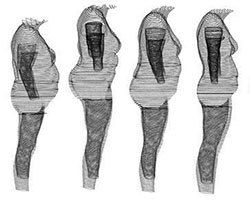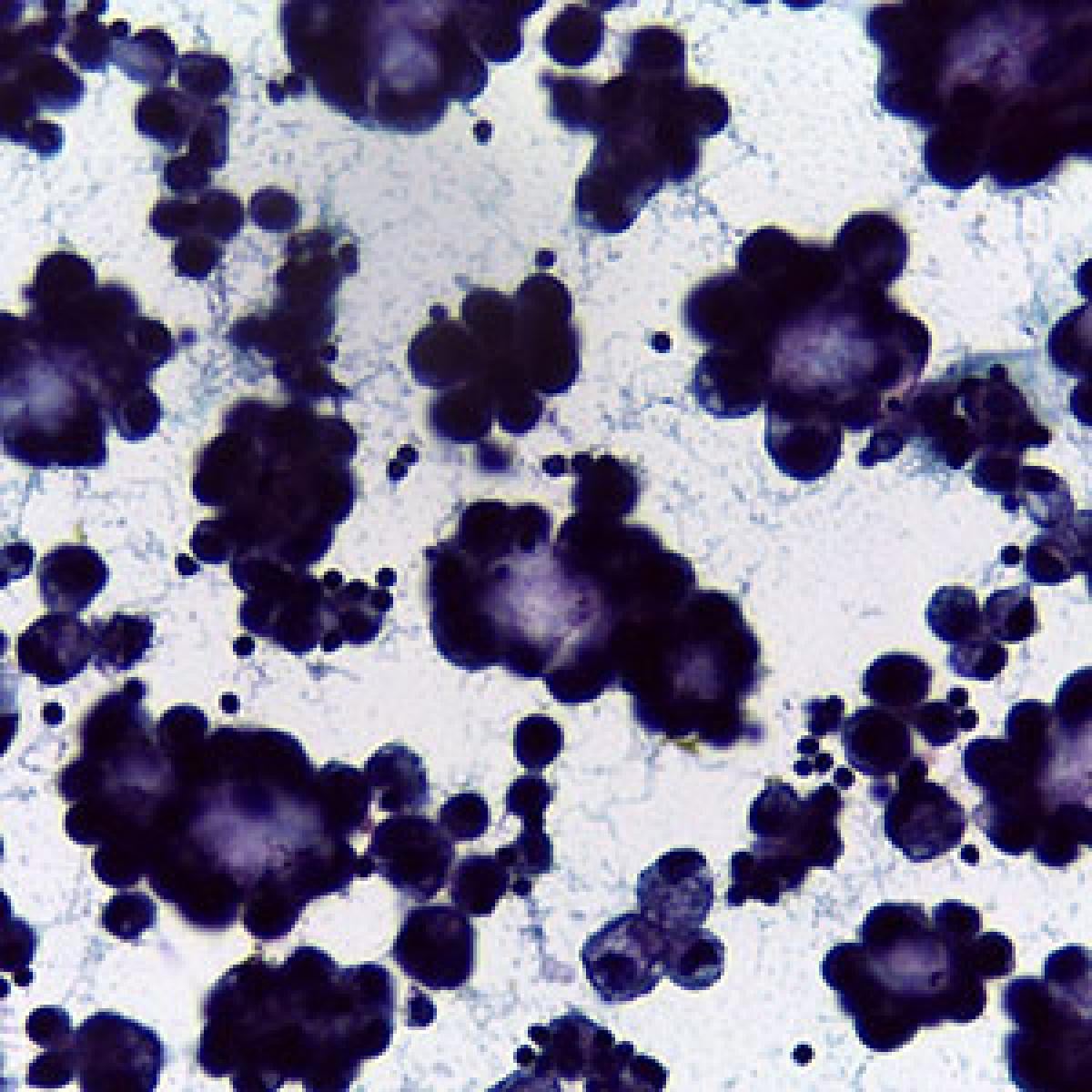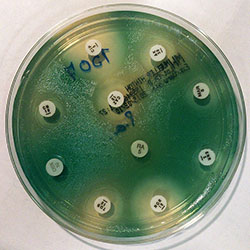
EvMed in the Doctor’s Office
Don’t we already use evolution in medicine? Well, not really. We use findings from lots of different experiments in medicine, but the findings we use are from studies that don’t usually ask evolutionary questions. Most doctors only learn about evolution in an introductory biology class. Beyond that, most are never required to learn more about evolutionary theory.
Evolutionary medicine is a fairly new field. While the ideas have existed for a while, the study of evolutionary medicine really got going in the early 1990s. It used to be called Darwinian Medicine, but evolutionary medicine is a more accurate way to describe the field.
Should Doctors Use Evolutionary Ideas To Treat Patients?
This is a bit of a tricky question. Imagine you had to go to the doctor and your appointment wasn’t the best—you have a bacterial infection. But with an antibiotic prescription in hand, you feel confident that soon, all will be better. Your pharmacist gives you a 10-day course of pills to take and both her words and your doctor’s words echo in your mind: make sure to finish all your pills.
Many of us have been told this in our lives…take all your antibiotics to ensure they work properly and kill all the bad bacteria. Now, obviously we all want the bad bacteria gone. But studies in mice have started to show that taking too many antibiotics can be a bad thing for some infections. If any of the bad bacteria in an infected mouse are resistant to the antibiotic treatment, those drug-resistant bad bacteria spread. By giving the mouse antibiotics, you knock out all the competition that resistant bacteria might experience from non-resistant bacteria. Those bacteria then have a much better chance of launching a full-on attack against your body.
Now, this understanding of evolutionary competition is helpful to doctors so they can explain to patients why a seemingly simple infection may come back and require different medication. But should your doctor be using that information to decide to give you a different treatment plan in the first place? This is where things get complicated.
The studies that have shown fewer antibiotics may improve health were on mice; they have not yet tested this in humans. Thus, we cannot and should not be altering our treatments based on this information… at least not yet. Hopefully tests in humans will soon be completed and will teach us better ways to treat bacteria without promoting antibiotic resistance.
Evolutionary Medicine is About the “Whys”

An evolutionary view of medicine can be extremely useful to help patients understand the “whys” of medicine… why are many cancers more common now than they used to be? Why do so many people struggle with obesity? Why does depression exist? But a specific doctor shouldn’t plan to use evolutionary ideas every day to alter the treatment of patients. Eventually, evolutionary medicine will be affecting how patients are treated, but each treatment that is based on a new idea still needs to be highly studied and tested before a doctor should recommend it.
For now, the most important use of evolution in medicine is to develop new questions and approaches for research. Hopefully someday the treatment plans your doctor gives you will be based on very well researched and understood treatments that are formed with an understanding of our bodies and our health in light of evolution.
Great research in evolutionary medicine is occurring at Arizona State University’s Center for Evolution and Medicine (CEM) and at a variety of institutions across the globe. The CEM is also working on a collection of educational resources that can be found at EvMedEd.org. For new updates on the field of evolutionary medicine, visit EvMedReview.com.
Stained osteosarcoma cell by Howard Vindin via Wikimedia Commons.
Read more about: What is Evolutionary Medicine?
Bibliographic details:
- Article: EvMed in the Doctor's Office
- Author(s): Dr. Biology
- Publisher: Arizona State University School of Life Sciences Ask A Biologist
- Site name: ASU - Ask A Biologist
- Date published: 21 Jun, 2017
- Date accessed:
- Link: https://askabiologist.asu.edu/evolutionary-medicine-doctors
APA Style
Dr. Biology. (Wed, 06/21/2017 - 17:15). EvMed in the Doctor's Office. ASU - Ask A Biologist. Retrieved from https://askabiologist.asu.edu/evolutionary-medicine-doctors
Chicago Manual of Style
Dr. Biology. "EvMed in the Doctor's Office". ASU - Ask A Biologist. 21 Jun 2017. https://askabiologist.asu.edu/evolutionary-medicine-doctors
Dr. Biology. "EvMed in the Doctor's Office". ASU - Ask A Biologist. 21 Jun 2017. ASU - Ask A Biologist, Web. https://askabiologist.asu.edu/evolutionary-medicine-doctors
MLA 2017 Style

Evolutionary medicine may teach us more about why breast cancer is so common today.
Be Part of
Ask A Biologist
By volunteering, or simply sending us feedback on the site. Scientists, teachers, writers, illustrators, and translators are all important to the program. If you are interested in helping with the website we have a Volunteers page to get the process started.


